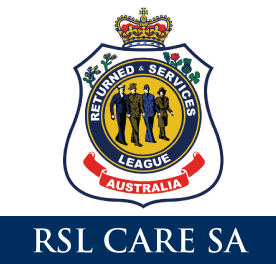The Janus Approach is a philosophy of care, specific to RSL Care SA, that acknowledges residents are unique individuals, who have a variety of personal needs and preferences. In order to deliver the Janus Approach at RSL Care SA, we have identified speciality areas of care provision which are addressed through the ‘Janus Keys’. The leader for each respective ‘key’ is accountable for maintaining current evidenced based practice and applying this in the performance monitoring of care delivery to the residents of RSL Care SA. We currently have six Janus Keys and have intentionally designed this model so that as the approach matures and the needs of residents’ change, additional ‘keys’ can be added.
DIGNITY AND PERSON CENTRED CARE
“To me it is important to have the same routine I would have if I still lived in my own home… I like to read the paper with a coffee in the morning before I start my day”
Margaret, War Veterans Home Resident
The Janus Approach ensures that a comprehensive life history or “Life Story” is gathered for each resident in partnership with the resident and families who wish to be involved. From this life story and with resident and family collaboration, staff are able to determine what quality of life means to each resident. Life stories are taken by staff who have received specific training in this area of assessment and are generally conducted over several weeks as a relationship of trust is built with the individual resident (or family). Dignity for each resident is promoted through an understanding of their individualised goals of care, personal preferences and individual ‘life story’. Staff are assisted to familiarise themselves with these ‘life stories’ in order to deliver the appropriate care as well as adhere to RSL Care SA principles of dignity. These principles were developed in partnership with residents, representatives, floor staff, management and board of RSL Care SA.
MEANINGFUL ENGAGEMENT AND SPIRITUALITY
“The thing I notice the most is the attention to detail given to the recreational opportunities offered. The staff always put in a big effort to make events special for us”
Kath, Morlancourt Resident
“Spirituality is a very important part of my life. I believe that there is something in all of us that knows more than we do, and if we follow that line, we will be safe”.
Robert, War Veterans Home Resident
The Janus Approach recognises that all individuals have spiritual needs which may not always be based on religious belief or lack of belief. The need for social and leisure programs form an integral part of daily living that have purpose, through enhancing and strengthening the physical and psycho-social capabilities of the resident and increasing self-esteem, self-worth, connection and meaning. Through this Janus Key we support residents to have a wellbeing program that is designed to promote each individual’s independence consistent with individual abilities and wishes. A resident’s needs (social, spiritual or emotional) can change as they are faced with emotional challenges and a significant sense of loss, which can be associated with a move to a new environment, changed circumstance or adjusting to life in an aged care setting.
Residents have the choice and opportunity to participate, or not, in various programs, including cultural practices, customs and rituals that residents have undertaken throughout their life and are not isolated to a country of birth. It is also important for staff to enable the ‘space’ for the resident to change their mind regarding these preferences.
MAKING EATING SOCIAL AND SENSATIONAL (MESS)
The MESS (Making Eating Social and Sensational) recognises that there is more to meals than just nutrition alone, there are also significant positive social outcomes of sharing a meal or mid-meal snack, as well as those meals that are consumed being exciting for the senses. We have drawn on our military heritage where the MESS, is not only about eating, but moreover about the relaxation that dining together provides, social gatherings and hosting special events. We achieve this by providing residents with a selection of meals/menus that meet their preferences; providing meals that are not only nutritious, but also visually appealing, smell delicious and tasteful; and provide environments that enable social connection in multiple spaces where families can also share in the preparation, cooking and enjoying of meals with residents.
MENTAL HEALTH & TRAUMA INFORMED CARE
“Mental health is important to maintain and improve upon for our residents because it underpins their overall wellbeing, social interactions, and ability to live out a happy and meaningful life”
Kane, Veteran Support Officer
Mental health illness and disorders are as important as physical care needs and often have as great an impact on physical and social wellbeing. Some examples of mental health conditions experienced by residents within RSL Care SA are depression, anxiety and confusion. These can be suffered by any resident at any time, and individuals respond differently to these conditions and staff work with residents and families to support residents diagnosed with these conditions, ensuring that all staff are aware of how to support residents to achieve the best outcome in-line with the resident’s goals of care.
SEXUALITY AND INTIMACY
“The opposite of Loneliness is not Togetherness , It’s Intimacy”
Richard Bach, Author
The Janus Approach recognises that the need for love, affection, physical closeness and contact continues throughout life, including for residents who are living within an aged care setting. People living in an aged care facility will often still have sexual desires and be capable of acting on those desires, as well as having a need to express themselves sexually, however, this may be difficult for residents to disclose as it has always been a topic kept private or only shared with people they trust. As part of this Janus Key and an individual resident’s quality of life, it is also important to understand the level of intimacy they need or desire. Support to achieve emotional connection and intimacy at any level are developed with the resident (or family), to support each individual resident’s need for intimacy and sexual expression in whichever form this may take.
PALLIATIVE APPROACH
“Good Palliative Care is about quality of life for those living with a life limiting or terminal illness. It is about helping a person to be as comfortable as they can, so they can live as well as possible. “Leaves grow old gracefully, bring such joy in their last lingering days. How vibrant and bright is their final flurry of life.” (by Karen Gibbs)”
Lynne, Palliative Approach Advocate
The Janus Approach adheres to the Palliative Approach in Residential Aged Care (2005). This approach ensures that residents with life limiting illnesses are afforded quality of life throughout their journey within the residential aged care setting. This Janus Key affirms life and respects dying as a normal process. It neither hastens nor postpones death, but rather aims to enhance the quality of life whilst also positively influencing the course of the illness. This Janus Key also recognises that there are three very distinct phases of palliation (greater than 6 months to live, less than 6 months to live, and end of life approaching within a week) and ensures that within each phase the resident is provided with:
- Autonomy, dignity, comfort and respect
- Honest, open discussion about conditions and treatment options
- Access to any available evidence-based treatment options
- Effective management of pain and other distressing symptoms
- Quality of life, as defined by them, in the circumstances
- Assurance that any cultural or spiritual wishes will be upheld
- Access to the people they wish to be present
Our staff will meet with residents and families on admission and throughout their admission period to ensure that staff and families have a sound understanding of the type of care the residents wishes to be delivered at each stage of palliation.

